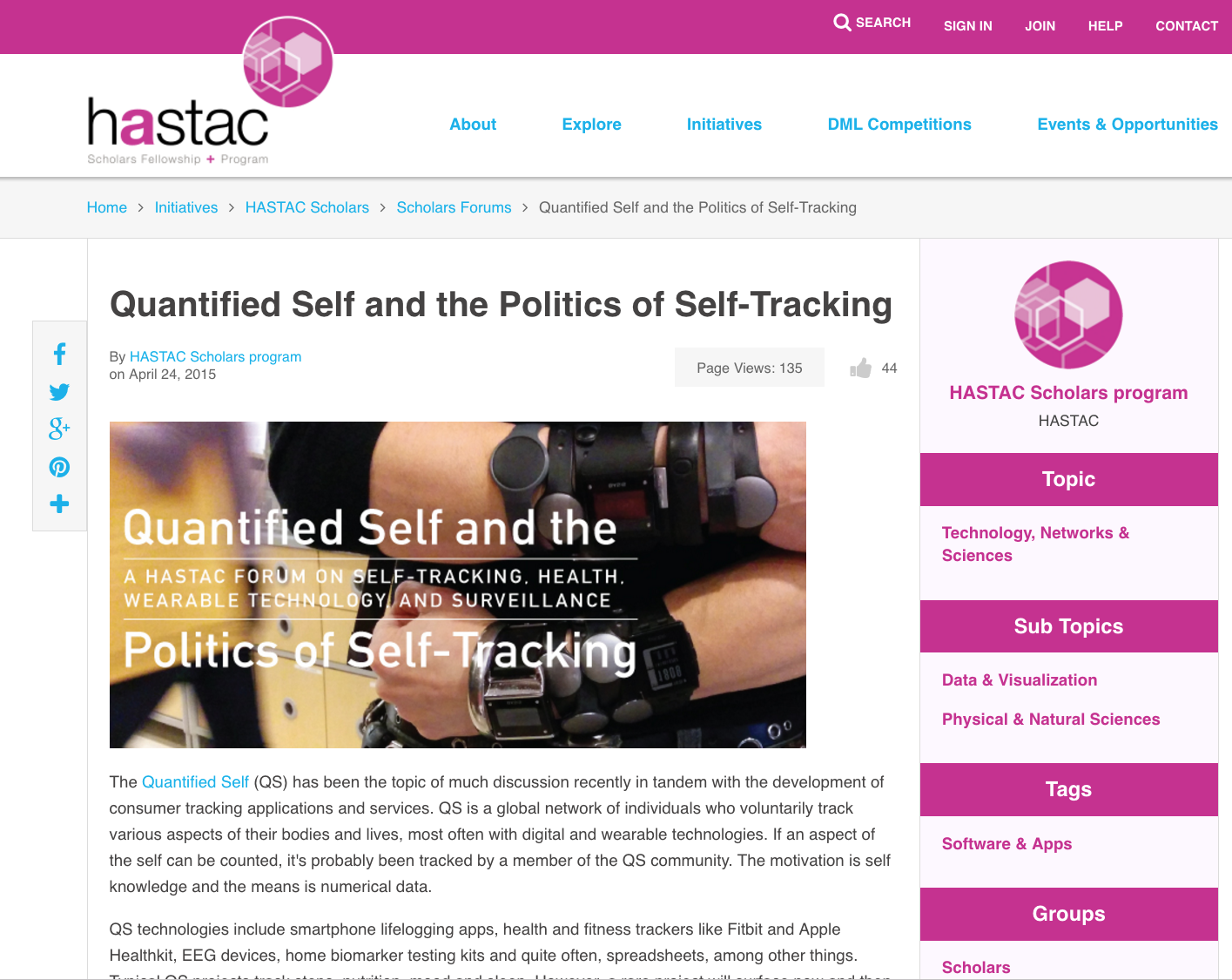Quantified Self and the Politics of Self-Tracking
The Quantified Self (QS) has been the topic of much discussion recently in tandem with the development of consumer tracking applications and services. QS is a global network of individuals who voluntarily track various aspects of their bodies and lives, most often with digital and wearable technologies. If an aspect of the self can be counted, it’s probably been tracked by a member of the QS community. The motivation is self knowledge and the means is numerical data.
QS technologies include smartphone lifelogging apps, health and fitness trackers like Fitbit and Apple Healthkit, EEG devices, home biomarker testing kits and quite often, spreadsheets, among other things. Typical QS projects track steps, nutrition, mood and sleep. However, a rare project will surface now and then that interrogates such things like how often a self tracker’s values were exercised on a daily basis, the extent of a person’s material consumption, or even conversations and things heard over a decade, in the form of a searchable database!
In this HASTAC forum, we explore a community at the intersection of posthuman and transhumanist futures, as well as contemporary debates around digital health, surveillance and self governance. Through the forum, we hope to tackle some of the tough questions and challenges facing the quantified self community, including the politics of self-surveillance, the notions of data, identity, and agency inherent in QS practices, and its efforts towards subverting institutionalized knowledge production and reforming institutionalized medicine.

